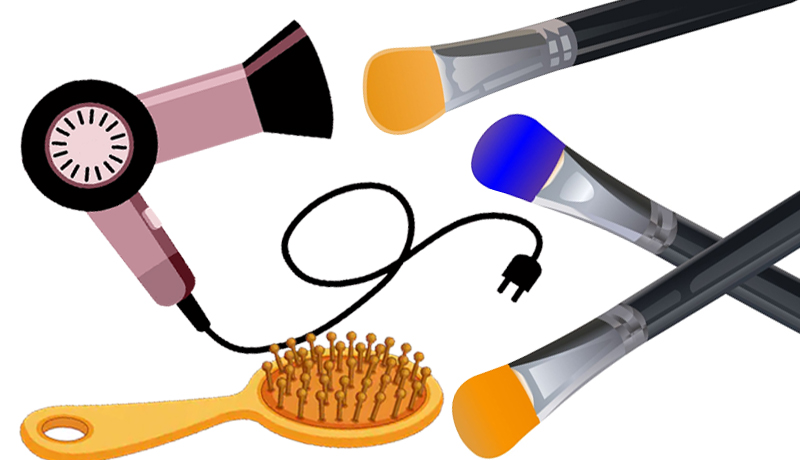Governments around the globe seem to be stuck in a balancing act as their only options come down to either prioritising the public health of their people or an economic recession. In between these heavy scales, dealing with service-based industries and businesses becomes uniquely challenging.
What is the solution for people who cannot possibly work ‘remotely’ or ‘online’? Retail businesses can brave through this as the switch to online shopping took place a long time before the outbreak. Other firms may be able to survive through emails and online meetings. Even governments can continue to function through virtual meetings and telephone calls. Have you ever thought of giving someone a virtual haircut? It’s practically impossible.
Following a government notice, TONI&GUY had to shut its doors to safeguard the health of all staff and clients. The silent salon, a place once filled with laughter and the sound of blow-dryers, suddenly became eerie and ominous. There has been a financial and social impact of the virus on service-based businesses in particular the hair and beauty industry, gymnasiums and cinemas. Even large businessmen or financial analysts could not have contemplated running a business with no income.
One positive thing is that people have been quick and innovative in adjusting; gyms are hosting online classes based on subscription membership, cinemas are streaming online, but to a salon, where the service is dependent on close physical contact, this occurrence has been absolutely devastating. Beauty professionals face a potential threat to their health and livelihoods if the outbreak escalates.
Many businesses will perhaps not survive this. The biggest concern at the moment is providing for one’s employees while generating no revenue. Along with the stream of client bookings and appointments, events, film and television production shoots, live shows and magazine editorials, have been cancelled or rescheduled until further notice. Salon owners may endure this temporarily if they delve into their savings, provided they are of an adequate amount, and some may even continue to provide wages at a personal loss. However, this can only be sustained for a while, and then there is a heavy responsibility upon the employer to render them jobless in a market with absolutely no opportunities.
This is not to say that salons should not abide by government instructions outlining the importance of social distancing. However, once they are allowed to be operational again, the licensing of beauty professionals should be of utmost importance. Salons should be regulated, examined and have frequent oversight by regulatory bodies along with the introduction of Standard Operating Procedures for professionals in the hair and beauty industry.
A few recommendations may be taken from the experiences of Chinese hairdressers, who are now beginning to open their businesses. In Beijing, TONI&GUY is operating with a limited number of persons in the salon at a time. In addition, health checks are done on staff as well as on clients, disinfectants are sprayed all over the premises hourly, clients sit at a 2.5-metre distance from one another at all times, and an ‘elderly-hour’ is introduced to accommodate those who may be at higher risk of contracting disease. The implementation of these recommendations, combined with the losses made from closures, will be an enormous feat for most businesses.
There are social implications faced by the prolonged closure of salons, especially in Pakistan. Many women who work in salons are not breadwinners of their homes. They were not given the chance nor did anyone believe that they could become economically independent. One may argue that choosing a beautician’s career was not considered to be a serious or respectable career. Occasionally, one still hears the condescending manner in which these professions are referred to, for example, by the term ‘parlour girl’. For these women to be told to stay at home and refrain from doing their job invokes emotions that make them feel unworthy.
Over the years, these women have overcome their personal battles and are now instrumental in financially running their own homes and educating their children. For these women, the salon has become not just a workplace but a place where they felt empowered which is dwindling once it is taken away.
Along with the current epidemic, there is also a rise in domestic violence and mental health concerns. Having grown up observing and being involved in the salon workspace, it startled me as to how many women come from homes where domestic violence, mental and physical, has been woven into the fabric of their lives.
It would be safe to say their workspace had become their ‘safe-space’. As an employer, the realisation of women being ‘trapped’ in such a volatile environment becomes concerning. Many have also spoken about a loss of morale, a sense of failure as well as increased anxiety levels. For such women, wage subsidies and stimulus packages become an utmost priority in order to preserve their job security, financial and social independence.
The outbreak of the virus has brought unique challenges to all businesses, and with the pace at which new developments are arising, these are not likely to be our only difficulties. This is a time to be innovative and flexible if businesses, big or small, are to brave this pandemic.
The importance of social distancing and abiding by government regulations should be regarded with respect to come out of this crisis. We should be prepared to deal with the trials once we are operational and use this opportunity to focus on ways in which we can come out stronger rather than defeated.

